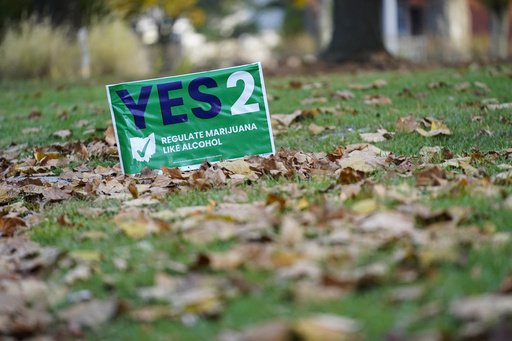COLUMBUS, Ohio (AP) — A new law banning foreign nationals and green card holders from contributing to state ballot campaigns in Ohio curtails the constitutionally protected rights of free speech and association, according to a lawsuit filed Thursday in federal court.
Republican Gov. Mike DeWine signed the measure June 2, after lawmakers coupled it with a higher-profile bill adjusting Ohio’s election calendar in order to ensure Democratic President Joe Biden would appear on November ballots.
Lawyers at the Elias Law Group, a prominent Democratic law firm, and Cooper Elliott told the U.S. District Court for the Southern District of Ohio that HB 1 would “unconstitutionally impede public debate through the enforcement of new broad and sweeping prohibitions” on ballot issue spending.
“Because of HB 1, all noncitizens are now threatened with investigation, criminal prosecution, and mandatory fines if they even indicate they intend to engage in any election-related spending or contributions ? including to support or oppose ballot questions in virtually any capacity,” according to the lawsuit.
The litigation argues the law, set to take effect Sept. 1, violates both the First and 14th Amendments to the U.S. Constitution.
It was brought on behalf of OPAWL – Building AAPI Feminist Leadership, the Northeast Ohio Coalition for the Homeless, a German citizen and her husband who live in Cleveland and a Canadian citizen who lives in Silver Lake, a suburb of Kent. OPAWL is a grassroots organization of Asian, Asian American and Pacific Islander women and nonbinary people living in the state.
Statehouse Republicans championed the ban on foreign nationals’ donations to issue campaigns after a string of ballot measure didn’t go their way. Voters sided against GOP leaders’ prevailing positions by wide margins on three separate ballot measures last year, including by protecting abortion access in the state Constitution, turning back a proposal to make it harder to pass such constitutional amendments in the future, and legalizing recreational marijuana.
Political committees involved in the former two efforts took money from entities that had received donations over the past decade from Swiss billionaire Hansjorg Wyss, though any direct path from him to the Ohio campaigns is untraceable under campaign finance laws left unaddressed in the Ohio law. Wyss lives in Wyoming.
John Fortney, a spokesperson for Republican Ohio Senate President Matt Huffman, argued that the filing of the lawsuit proves that Democrats are reliant on the donations of wealthy foreign nationals.
“Ohio’s Constitution isn’t for sale, despite the progressive left’s un-American sell out to foreign influence,” he said in a statement.
A decision to include green card holders in the ban was made on the House floor, against the advice of the chamber’s No. 3 Republican, state Rep. Bill Seitz, a Cincinnati attorney, who voted against the amendment.
Seitz cited a U.S. Supreme Court opinion that suggested extending such prohibitions to green card holders “would raise substantial questions” of constitutionality.


